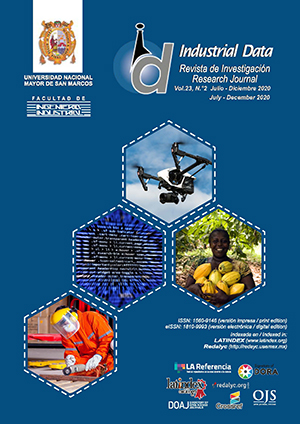Architecture based on Microservices and DevOps for continuous software engineering
DOI:
https://doi.org/10.15381/idata.v23i2.17278Keywords:
Microservices, Devops, Disruptive TechnologiesAbstract
Microservices are conceived as an architectural style focused on developing applications through a set of services, independent, scalable, collaborative, evolutionary, capable of adapting to complex ecosystems. On the other hand, DevOps is a paradigm that uses a set of principles focused on the continuous delivery and integration of software, this implies a new culture to develop and deploy software in highly collaborative and agile contexts aimed at reducing the gap between development and operations. It is in this context that the present work proposes an Architecture based on Microservices and DevOps for continuous software engineering and applies the proposal through a case study with the participation of development teams formed by the students of the Workshop courses of Software and Systems Construction of the academic semesters: 2018-1, 2018-2, 2019-1, 2019-2 and led by the authors of this research; As a result of value there is a software product consisting of a set of Apps implemented with leading stack technologies under a disruptive approach.
Downloads
Downloads
Published
Issue
Section
License
Copyright (c) 2020 Zoraida Emperatriz Mamani Rodríguez, Luz Del Pino Rodríguez, Juan Carlos Gonzales Suarez

This work is licensed under a Creative Commons Attribution-NonCommercial-ShareAlike 4.0 International License.
AUTHORS RETAIN THEIR RIGHTS:
a. Authors retain their trade mark rights and patent, and also on any process or procedure described in the article.
b. Authors retain their right to share, copy, distribute, perform and publicly communicate their article (eg, to place their article in an institutional repository or publish it in a book), with an acknowledgment of its initial publication in the INDUSTRIAL DATA.
c. Authors retain theirs right to make a subsequent publication of their work, to use the article or any part thereof (eg a compilation of his papers, lecture notes, thesis, or a book), always indicating the source of publication (the originator of the work, journal, volume, number and date).






